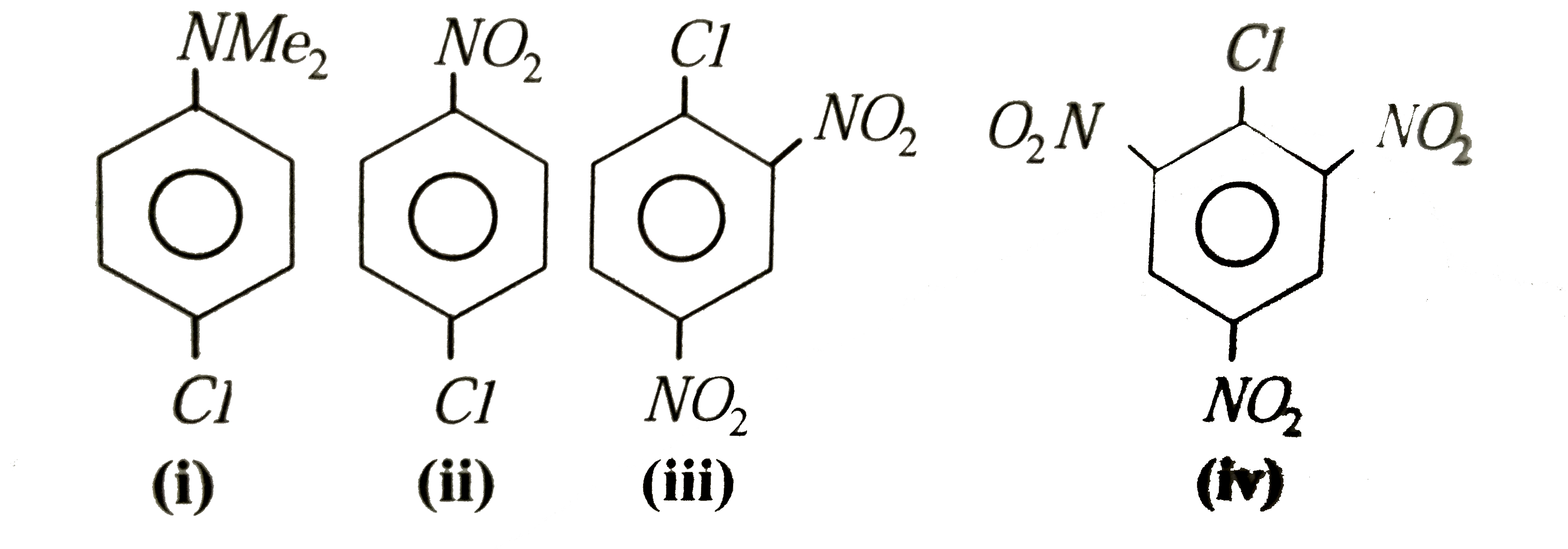Chlorobenzene is extremely less reactive towards nucleophilic substitution reaction. Give two reasons for the same.
Video Solution
Text Solution
(i). The C−Cl bond has partial double bond character on account of conjugation.
(ii). The carbon atom in C−Cl bond is sp2 hybridised and is therefore, sufficiently electronegative in nature. Therefore, the bond cleavage is quite difficult.
|
Topper's Solved these Questions
- HALOALKANES AND HALOARENESBOOK - DINESH PUBLICATIONCHAPTER - HALOALKANES AND HALOARENESEXERCISE - Higher Order Thinking Skills Questions
9 Videos
- HALOALKANES AND HALOARENESBOOK - DINESH PUBLICATIONCHAPTER - HALOALKANES AND HALOARENESEXERCISE - Some typical work problems based on coversions
6 Videos
- HALOALKANES AND HALOARENESBOOK - DINESH PUBLICATIONCHAPTER - HALOALKANES AND HALOARENESEXERCISE - Additional important questions
30 Videos
- GENERAL PRINCIPLES AND PROCESSES OF ISOLATION OF ELEMENTS BOOK - DINESH PUBLICATIONCHAPTER - GENERAL PRINCIPLES AND PROCESSES OF ISOLATION OF ELEMENTS EXERCISE - Brain Storming Multiple Chocie Questions
7 Videos
- HYDROCARBONSBOOK - DINESH PUBLICATIONCHAPTER - HYDROCARBONSEXERCISE - All Questions
493 Videos
Similar Questions
Knowledge Check
Aryl halides are less reactive towards nucleophilic substitution reaction as compared to alyl halides due to
Aresonance effectBinstability of PHEnyl cationCrepulsionDAll of the aboveAryl halides are less reactive towards nucleophilic substitution because
ALess stable carbonium ionBDue to largeC−CI bond energyCInductive effectDResonance stabilization and sp2-hybridisation of C attached to halide .The correct order of reactivity towards nucleophilic substitution reaction is
ACH3F>CH3Cl>CH3Br>CH3IBCH3I>CH3Br>CH3Cl>CH3FCCH3I>CH3Cl>CH3Br>CH3FDCH3I>CH3Br>CH3F>CH3Cl
The order of reactivity in nucleophilic substitution reaction is
View SolutionWhich one is least reactive in a nucleophilic substitution reaction?
View SolutionWhich is most reactive towards nucleophilic addition reactions?
View SolutionWhich of the following is most reactive toward nucleophilic substitution reaction ?
View SolutionWhich of the following is most reactive towards nucleophilic substitution reaction?
View Solution

